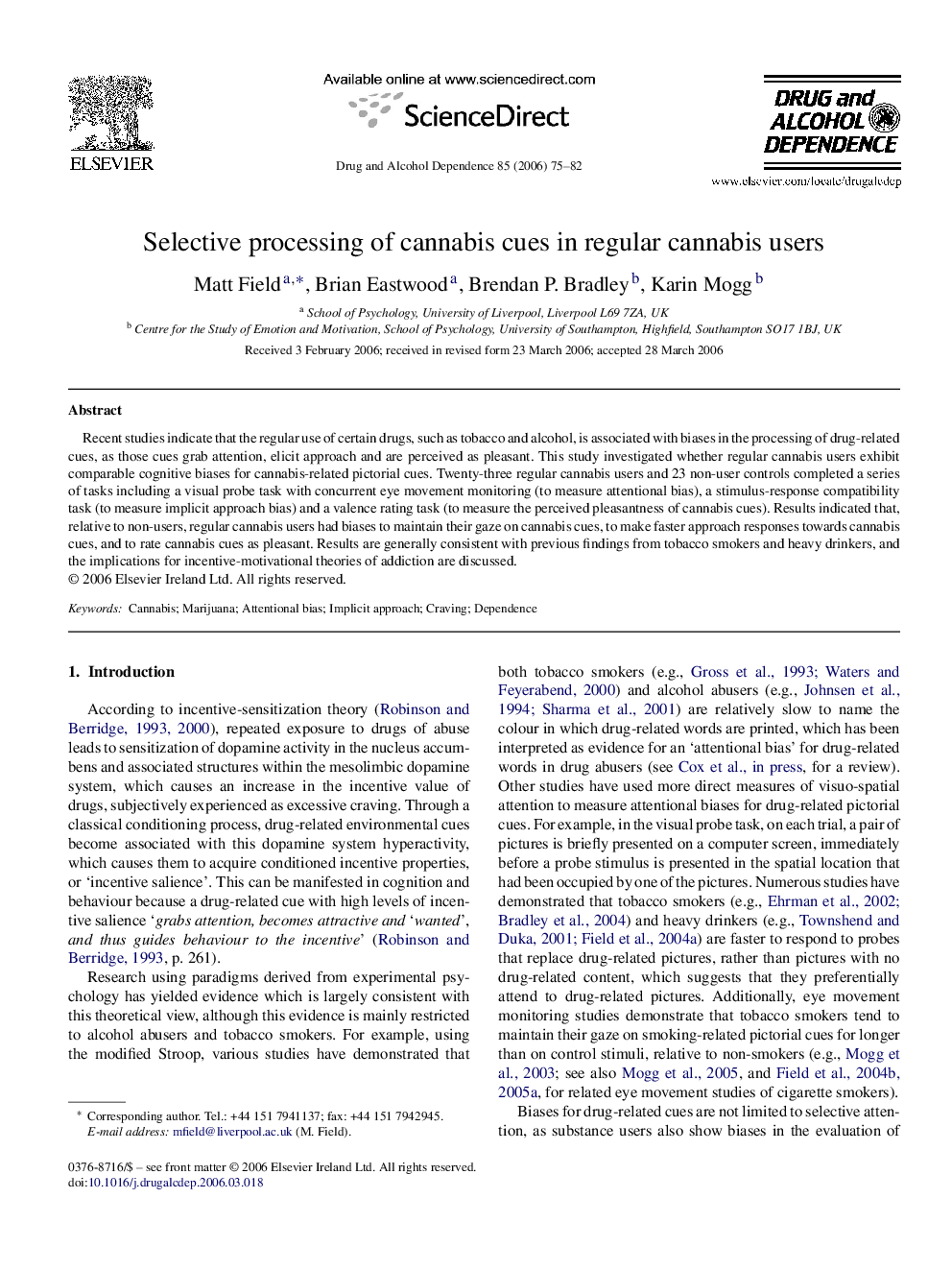| Article ID | Journal | Published Year | Pages | File Type |
|---|---|---|---|---|
| 1071260 | Drug and Alcohol Dependence | 2006 | 8 Pages |
Recent studies indicate that the regular use of certain drugs, such as tobacco and alcohol, is associated with biases in the processing of drug-related cues, as those cues grab attention, elicit approach and are perceived as pleasant. This study investigated whether regular cannabis users exhibit comparable cognitive biases for cannabis-related pictorial cues. Twenty-three regular cannabis users and 23 non-user controls completed a series of tasks including a visual probe task with concurrent eye movement monitoring (to measure attentional bias), a stimulus-response compatibility task (to measure implicit approach bias) and a valence rating task (to measure the perceived pleasantness of cannabis cues). Results indicated that, relative to non-users, regular cannabis users had biases to maintain their gaze on cannabis cues, to make faster approach responses towards cannabis cues, and to rate cannabis cues as pleasant. Results are generally consistent with previous findings from tobacco smokers and heavy drinkers, and the implications for incentive-motivational theories of addiction are discussed.
